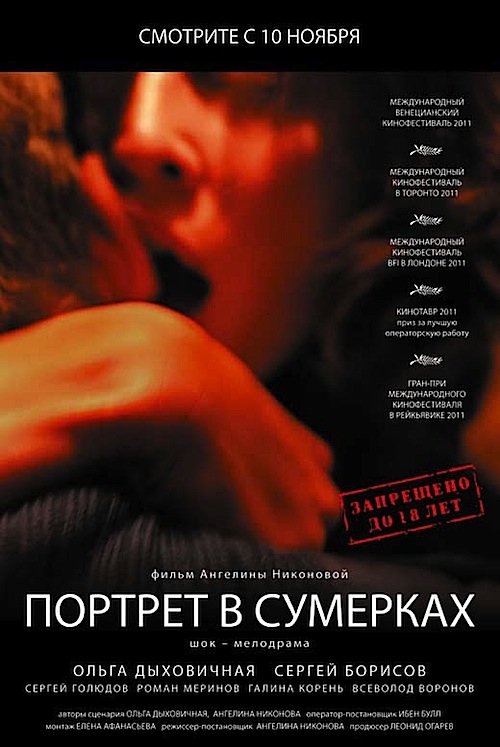 By Joe Bendel. In Moscow, you can never find a cop when you need one—if you’re lucky, that is. While ostensibly nonpolitical, a scathing picture of the Putin era’s petty corruption, casual cruelty, and moral malaise emerges in Angelina Nikonova’s Twilight Portrait (see a clip here), which screens this week during the 2012 edition of New Directors/New Films.
By Joe Bendel. In Moscow, you can never find a cop when you need one—if you’re lucky, that is. While ostensibly nonpolitical, a scathing picture of the Putin era’s petty corruption, casual cruelty, and moral malaise emerges in Angelina Nikonova’s Twilight Portrait (see a clip here), which screens this week during the 2012 edition of New Directors/New Films.
Initially, Marina appears to be a woman who has it all: a career she is ambivalent about, a husband she cannot respect, and a lover she despises. Unfortunately, after another unsatisfying tryst, the wheels come off Marina’s life. A stolen handbag, a broken heel, and a bit of dishevelment later, the cops pick up Marina on the assumption she is a prostitute and therefore fair game. The details are kept deliberately obscure from the audience, but we know some combination of the three officers rapes her in their patrol car.
Twilight’s second act might be the most realistic, bluntly unvarnished portrayal of the aftermath of such trauma yet rendered on film. Marina’s depression and anger manifest themselves in ways that are sometimes understandable, but often perplexing and off-putting. However, Twilight is just getting started. When Marina takes up with Andrei, one of the cops from that fateful night (who apparently does not recognize her in a different context), the film gets even darker. Is this part of an elaborate plan for revenge or compulsive self-debasement? Perhaps it is both or neither. Indeed, part of her seems drawn to Andrei’s unapologetic masculinity in much the same way Russia collectively submits to an authoritarian strongman like Putin. Twilight keeps its cards close to its vest, but it is safe to surmise their relationship is deeply twisted.

At this point, it might be helpful to point out Twilight was co-written by Nikonova and her lead actress, Olga Dihovichnaya. Nonetheless, some might find the film’s sexual dynamics, as described above, considerably troubling – which is perfectly reasonable. This is not a film for everyone, just like Bad Lieutenant is not a film for the masses. However, like Ferrara’s arguable masterwork, there is always a point to the degradation. Frankly, Twilight is not very explicit in terms of what it shows on-screen, but the implications of the character’s words and actions are undeniably disturbing.
Beyond visceral, Dihovichnaya gives a phenomenal performance that will make viewers squirm in discomfort. Film patrons will not see better work on-screen this year, but it is so brutally honest and tightly controlled, Dihovichnaya is unlikely to get the accolades she deserves, at least around these parts. (We’ll probably just shower our awards on Meryl Streep’s next schticky impersonation.)
Nikonova masterfully controls what the audience sees and what it thinks it perceives, keeping them off-balance and edgy throughout the film. It is not an easy film to watch, but it has some real arsenic to it. Recommended for those who fully understand what they are getting into, Twilight screens this Friday (3/30) at MoMA and Saturday (3/31) at the Walter Reade Theater, as the 2012 ND/NF wraps up a particularly strong year.
Posted on March 28th, 2012 at 4:55pm.